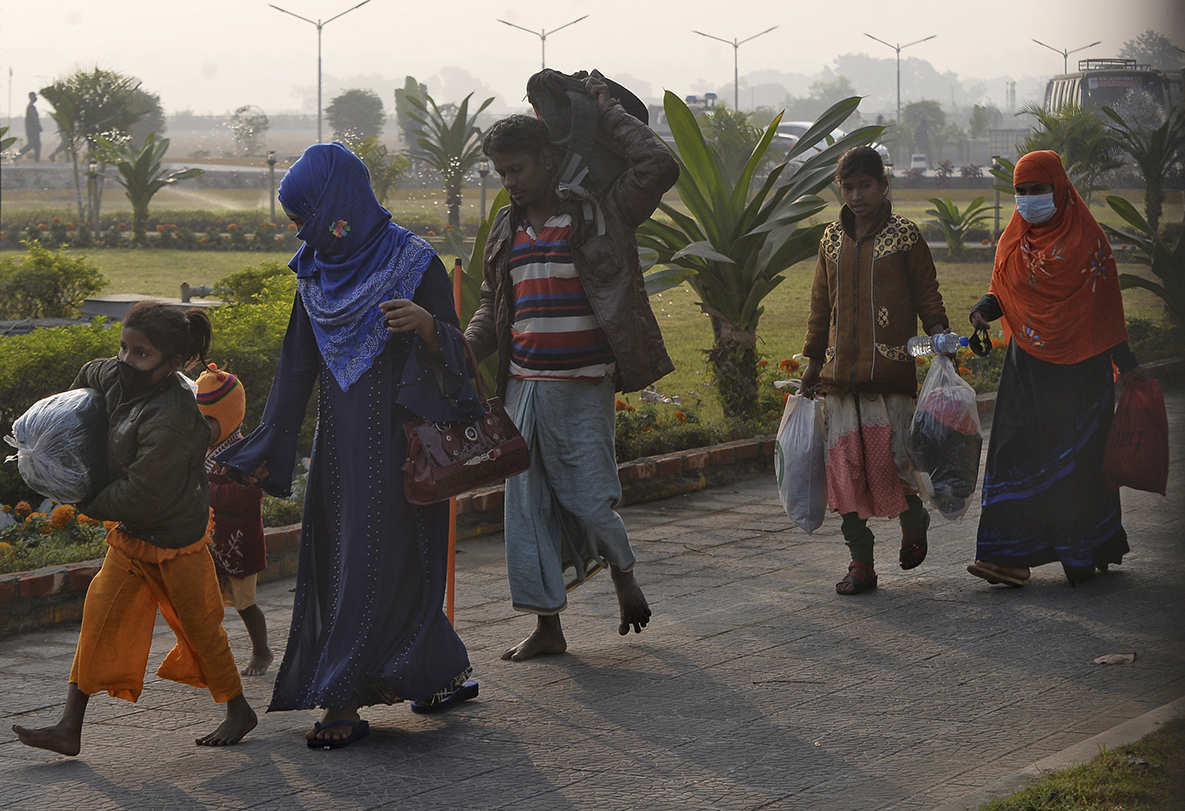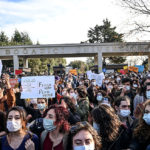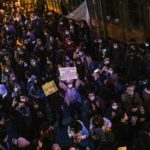ROHINGYA refugees in Bangladesh condemned the military coup in Myanmar today, but said they “did not feel sorry” for Aung San Suu Kyi.
Community leader Mohammad Yunus Arman spoke to Al Jazeera from the Kutupalong refugee camp in Bangladesh’s Cox’s Bazar district, saying that Rohingya families were massacred under her rule.
“She remained silent about it. She didn’t even utter the word ‘Rohingya’. Once we used to pray for her success and used to treat her like our queen. But after 2017, we realised her real character,” he said.
“We don’t feel sorry that [Suu Kyi] has been overthrown,” Mr Arman added.
Myanmar’s military took power on Monday and has placed Suu Kyi and other high-profile members of the government under arrest.
It insisted that the elections held last November and won by the National League for Democracy in a landslide were fraudulent, citing some 8 million irregularities.
The claims have been dismissed by Myanmar’s electoral commission, who said that while there were some minor issues regarding the election, there was no evidence of fraud.
The army has since unveiled a new governing council including eight generals headed by army chief General Min Aung Hlaing and has implemented a one-year state of emergency.
A meeting of the United Nations was unable to agree on a statement condemning the takeover, with China keen to avoid “further complicating the situation.”
It is believed that Beijing objected to the use of sanctions against Myanmar as proposed by the United States and other Western countries.
Protests against the militiary junta took place today as staff at 70 hospitals and medical departments in 30 towns across Myanmar took strike action.
“We refuse to obey any order from the illegitimate military regime who demonstrated they do not have any regard for our poor patients,” a statement from the newly formed Myanmar Civil Disobedience Movement said.
But some Rohingya representatives said they are not concerned about the military takeover.
“We have long been living under the military regime. The civilian government of Aung Sun Suu Kyi did nothing for us. They didn’t protest the genocide on our community,” said Sayed Ullah from the Thaingkhali camp.
Thousands of Rohingya were killed and more than 700,000 fled to neighbouring Bangladesh during an army crackdown in the Buddhist-majority country in 2017.
But Suu Kyi has denied accusations of a genocide and even defended the country from such charges at a December 2019 International Court of Justice trial.
Source: Morning Star



